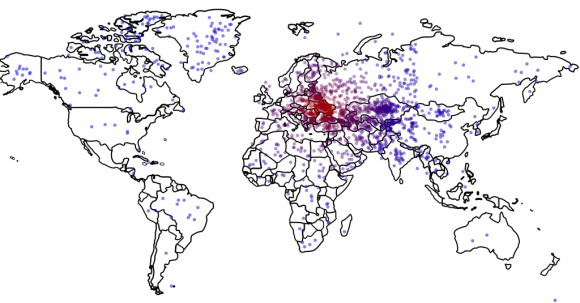There are few who deny that there is an acceptable range of opinion in official Washington on the Israeli-Palestinian conflict and another range of opinion which lies outside of it. The latter range refers mostly to any direct criticism of Israel or legitimizing any Palestinian perspective on the conflict.
Some voices manage to argue positions outside the “acceptable range” without being called an anti-Semite or a terrorist. In this case, six former U.S. officials (emphasis on the former) have written a piece in Politico that is a must-read.
Former national security adviser Zbigneiw Brzezinski, former U.S. secretary of defense Frank Carlucci, former chair of the House Foreign Affairs Committee Lee Hamilton, former U.S. trade representative Carla A. Hills, former under secretary of state for political affairs Thomas Pickering, and president of the U.S./Middle East Project Henry Siegman make several recommendations to John Kerry in the current negotiations. They call Israel’s policies of occupation and settlement in Palestinian territory “confiscation” and they describe Netanyahu’s demands as “politically and morally unacceptable.”
Here are the first two issues they cover:
Settlements: U.S. disapproval of continued settlement enlargement in the Occupied Territories by Israel’s government as “illegitimate” and “unhelpful” does not begin to define the destructiveness of this activity. Nor does it dispel the impression that we have come to accept it despite our rhetorical objections. Halting the diplomatic process on a date certain until Israel complies with international law and previous agreements would help to stop this activity and clearly place the onus for the interruption where it belongs.
Palestinian incitement: Prime Minister Benjamin Netanyahu’s charge that various Palestinian claims to all of historic Palestine constitute incitement that stands in the way of Israel’s acceptance of Palestinian statehood reflects a double standard. The Likud and many of Israel’s other political parties and their leaders make similar declarations about the legitimacy of Israel’s claims to all of Palestine, designating the West Bank “disputed” rather than occupied territory. Moreover, Israeli governments have acted on those claims by establishing Jewish settlements in East Jerusalem and throughout the West Bank. Surely the “incitement” of Palestinian rhetoric hardly compares to the incitement of Israel’s actual confiscations of Palestinian territory. If the United States is not prepared to say so openly, there is little hope for the success of these talks, which depends far more on the strength of America’s political leverage and its determination to use it than on the good will of the parties.
The second two issues they tackle relate to Israel’s absurd security demands which would essentially continue the occupation in perpetuity and Israel’s call for the Palestinian side to recognize Israel as “the national homeland of the Jewish people.” On the latter issue, the Palestinians already recognized the legitimacy of the state of Israel in 1988 and again in 1993. This fulfilled Israel’s demands at the time, but once the Palestinians agreed to it, Israeli policy then shifted to something they were sure Palestinians wouldn’t cave on. Like with Israel’s demands to continue to occupy the Jordan Valley, their negotiating tactics are designed to provoke Palestinian rejection and thus a breakdown in talks.
I emphasized that these were former U.S. officials because that seems to be the only time people in government dare utter a perspective contrary to Israel’s right-wing; that is, when domestic politics is no longer a factor. This makes John Kerry’s concurrence unlikely in the extreme.





